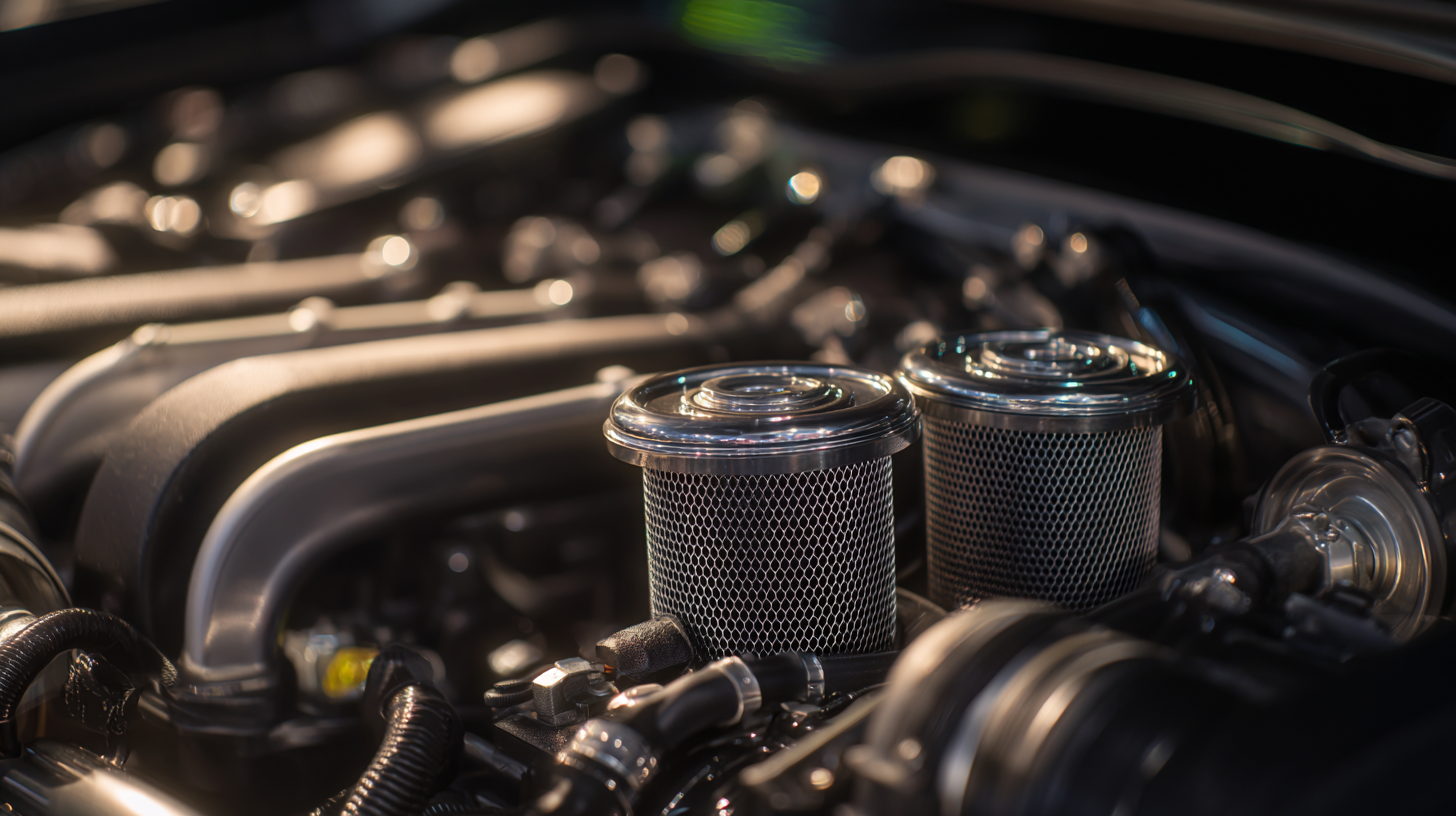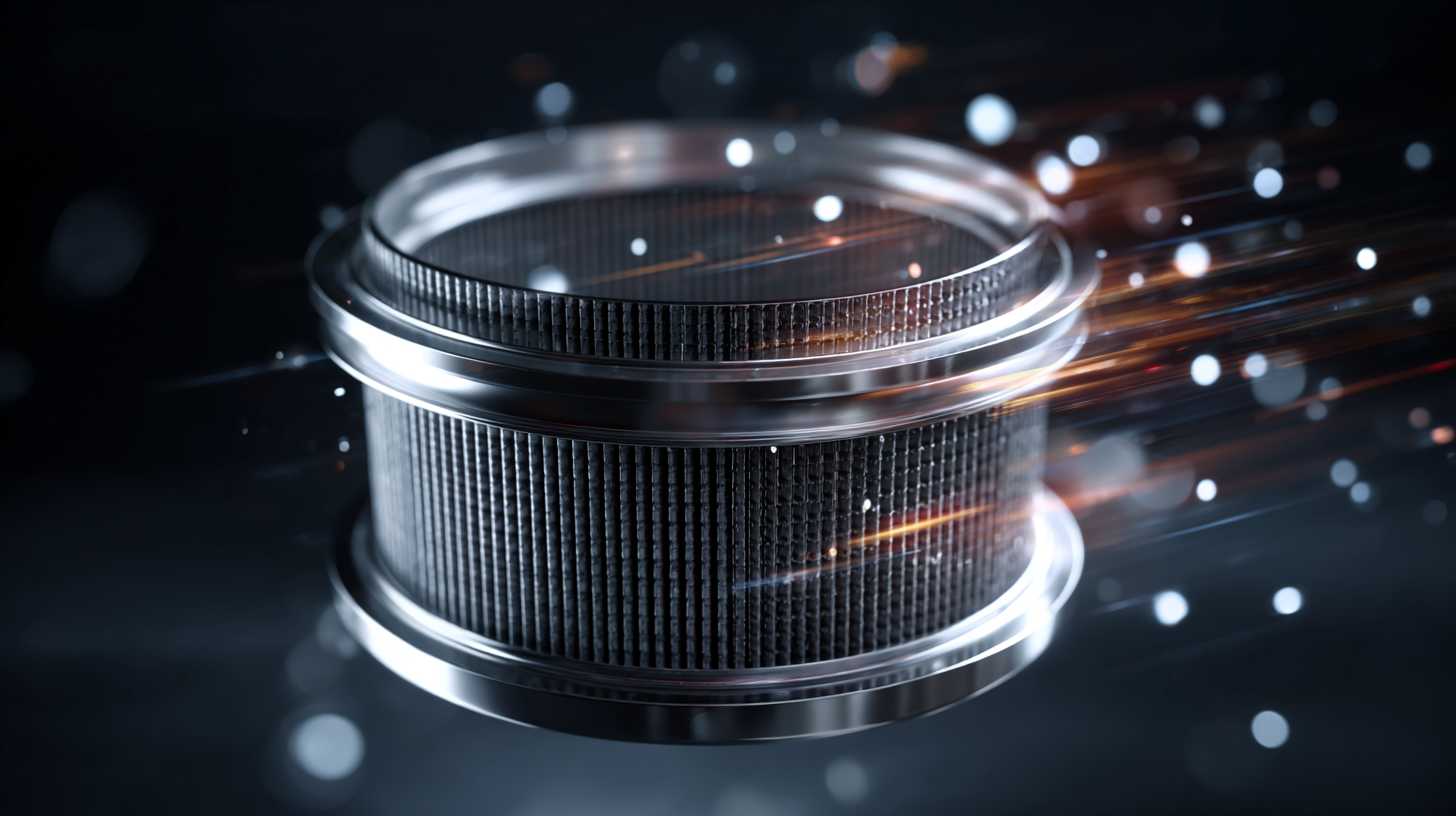
Unveiling the Top Five Best Auto Filters You Didnt Know You Needed
In today's automotive landscape, the importance of high-quality auto filters cannot be overstated. While many drivers are aware of basic maintenance tasks, few realize that selecting the right auto filters can significantly enhance vehicle performance and longevity.
 Whether it's oil filters, air filters, or cabin filters, each plays a crucial role in ensuring that your engine runs smoothly and your driving experience remains comfortable. However, with countless options available on the market, how do you choose a manufacturer that delivers both quality and reliability?
Whether it's oil filters, air filters, or cabin filters, each plays a crucial role in ensuring that your engine runs smoothly and your driving experience remains comfortable. However, with countless options available on the market, how do you choose a manufacturer that delivers both quality and reliability?
In this blog, we will unveil the top five best auto filters that you didn't know you needed, while also providing valuable insights on how to identify premium manufacturers. By focusing on these essential components, you can make informed decisions that will keep your vehicle in peak condition for years to come.
Exploring the Importance of Quality Auto Filters You Might Overlook
Auto filters play a crucial yet often overlooked role in vehicle maintenance, impacting everything from engine efficiency to air quality inside the cabin. According to a study by the Automotive Aftermarket Suppliers Association (AASA), nearly 70% of drivers underestimate the importance of replacing filters regularly. For instance, a clogged air filter can reduce engine performance by up to 11%, leading to increased fuel consumption. This translates to an average cost of $200 per year for consumers on wasted fuel, highlighting the direct financial implications of neglecting filter maintenance.
Moreover, high-quality oil filters are essential for ensuring the longevity of your engine. Research from the International Journal of Automotive Technology indicates that using subpar filters can result in oil contamination, which may lead to engine failure and costly repairs. As engines become more complex, the need for reliable filtration systems becomes even more critical. In fact, the market for automotive filters is projected to reach $30 billion globally by 2025, reflecting a growing awareness of the importance of quality auto filters among consumers and manufacturers alike. Investing in top-tier filters can not only enhance vehicle performance but also contribute to a healthier driving environment.

Innovative Alternatives to Traditional Auto Filters for Enhanced Performance
When it comes to enhancing your vehicle’s performance, the traditional auto filters you’ve relied on might not be enough. Recent research indicates that newer filtering technologies can significantly improve engine efficiency and longevity. For example, high-efficiency particulate air (HEPA) filters can capture up to 99.97% of microscopic pollutants, reducing the overall wear on your engine and promoting cleaner emissions. Moreover, synthetic filters are becoming increasingly popular, thanks to their ability to last longer and withstand higher temperatures compared to conventional paper filters.
Tip: Consider upgrading to a performance air filter that increases airflow while filtering out contaminants effectively. This not only boosts your vehicle's power but also can improve fuel efficiency by an estimated 10%.
In addition to air filters, other innovative options like oil filtration systems utilizing magnetic technology are gaining traction. These systems can capture ferrous and non-ferrous particles, reducing wear on engine components and potentially extending oil change intervals. Studies show that vehicles fitted with advanced oil filtration systems can experience a decrease in engine wear by up to 50%.
Tip: Regularly replacing your cabin air filter can also enhance your driving experience, leading to improved air quality inside the vehicle, which is crucial for those with allergies or respiratory issues.

Key Features of Top Alternative Auto Filters You Should Know About
When it comes to maintaining your vehicle, the importance of using high-quality auto filters cannot be overstated. According to a recent report by the Automotive Aftermarket Suppliers Association, approximately 20% of vehicle owners overlook the significance of replacing their auto filters regularly. This oversight can lead to decreased engine performance, reduced fuel efficiency, and ultimately, costly repairs. Among the top alternative auto filters available today, features such as pleated design for better airflow, enhanced filtration materials, and eco-friendly options are becoming increasingly important.
One standout option is the synthetic oil filter, which offers superior filtration efficiency compared to standard filters, capturing particulates as small as 10 microns. Studies by Consumer Reports indicate that vehicles utilizing synthetic filters can experience up to 95% better filtration, which not only extends engine life but also improves overall performance. Additionally, HEPA cabin air filters are gaining traction, as they remove allergens and pollutants, providing a cleaner atmosphere inside the vehicle. These filters can trap particles as small as 0.3 microns, significantly enhancing passenger comfort and safety. With these advancements, it’s clear that investing in the right auto filters is essential for both vehicle longevity and driver health.
How to Choose the Right Alternative Auto Filter for Your Vehicle
When it comes to maintaining your vehicle, selecting the right auto filter is crucial. While engine air filters and oil filters are commonly recognized, alternative auto filters such as cabin air filters, fuel filters, and transmission filters are often overlooked yet play an essential role in overall vehicle performance. To ensure your car runs efficiently, it’s important to understand the specific functions of these alternative filters. For instance, a cabin air filter enhances air quality within your car, making for a healthier driving experience, while a fuel filter prevents impurities from entering your engine, promoting fuel efficiency and longevity.
Choosing the right alternative auto filter necessitates a thorough understanding of your vehicle’s specifications and needs. Start by checking your vehicle's manual or consulting with a professional to identify what filters are compatible. Consider factors such as driving conditions, climate, and your vehicle’s age. Regular replacement of these filters not only protects your engine and internal systems but also can lead to improved fuel economy and enhanced air quality inside the vehicle. By being proactive in your filter choices, you can ensure your vehicle operates at its best for years to come.
Comparing Costs: Are Alternative Auto Filters Worth the Investment?
When considering the investment in alternative auto filters, it's essential to weigh their costs against potential benefits. While standard filters offer adequate performance, alternative options often provide enhanced filtration and durability. Investing in high-quality filters can result in better engine performance and reduced maintenance costs over time. However, ensuring that the chosen filter is compatible with your vehicle model is crucial to maximizing its effectiveness.
Tip: Research and compare the lifespan of standard and alternative filters. Often, alternative filters may have a higher upfront cost but can last longer, saving you money in the long run. Additionally, consider the type of driving you do; if you frequently drive in extreme conditions, investing in a more robust filter can significantly improve your vehicle's performance.
Another factor to consider is the brand reputation. Established brands may charge more, but they often deliver superior quality and reliability. Reading user reviews and expert opinions can provide insight into whether the investment in an alternative filter will pay off.
Tip: Don't forget to check for warranties and guarantees when purchasing auto filters. A good warranty can be a further indicator of a product’s quality and the manufacturer's confidence in their filter's performance.
Unveiling the Top Five Best Auto Filters You Didn't Know You Needed - Comparing Costs: Are Alternative Auto Filters Worth the Investment?
| Filter Type | Price ($) | Durability (miles) | Performance Rating (1-10) | Benefits |
|---|---|---|---|---|
| Oil Filter | 25 | 5,000 | 9 | Improves engine life |
| Air Filter | 15 | 15,000 | 8 | Enhances fuel efficiency |
| Cabin Air Filter | 30 | 10,000 | 7 | Improves air quality |
| Fuel Filter | 20 | 20,000 | 9 | Protects fuel injectors |
| Transmission Filter | 35 | 30,000 | 8 | Ensures smooth shifting |
